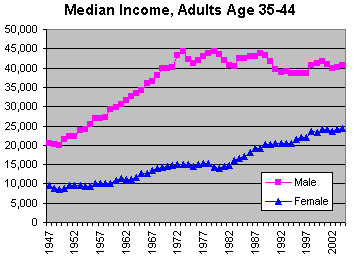COMPLICATED PROBLEMS….Douglas Holtz-Eakin, John McCain’s primary economic advisor, says that income inequality has gone up everywhere, not just in the U.S., and opines that “The source of that is education.” Matt Yglesias has a bunch to say about that, including this:
While there does seem to be an education-related component to the growth in inequality (specifically, the number of college graduates has not kept up with the growing labor market demand for college educated workers) there are also other factors, including the declining real value of the minimum wage and declining rates of unionization. In both cases, and all others I’m aware of, McCain takes the pro-inequality side.
I just want to quickly endorse the broader point Matt is making here. The growth of income inequality is a complex problem with multiple causes. In fact, virtually every social problem interesting enough to remain unsolved has multiple causes, and that makes them hard to address. The answer to this is not to pretend otherwise (“education” by itself certainly doesn’t explain the astronomical income growth of the top 0.1% compared to the top 1%, for example), nor is it to give up because there are lots and lots of causes and it’s hard to fix them all.

There are multiple kinds of income inequality, and assuming you care about this in the first place (and you should, both for reasons of basic fairness and because an egalitarian economy works better than a vastly unequal one) you have to address them all. You need things like minimum wage laws and the EITC to help the poor keep up. Unionization can help the working class and educational and training policies can help the middle class. Tax policies, at a minimum, should be designed to be at least modestly progressive at the high end. (Our current tax system, which features regressive state, local, and payroll taxes, and which taxes capital gains and dividends at low rates, has produced overall tax rates that are only slightly progressive. Most billionaires don’t pay an awful lot more than grocery checkers.) Things like universal healthcare can ameliorate some of the ill effects of whatever income inequality is left even after you’ve addressed the other stuff.
One way or another, though, any solution has to focus like a laser on increasing median wages to keep up with GDP growth. In the same way that TV revenue has produced an immense ocean of money for top athletes, keeping median wages flat has produced an immense ocean of extra money that sloshes around for the benefit of the tippy top executive class. Treat the middle class more fairly, and income inequality will decrease naturally. That should be Job 1 for Barack Obama’s economic team.

















